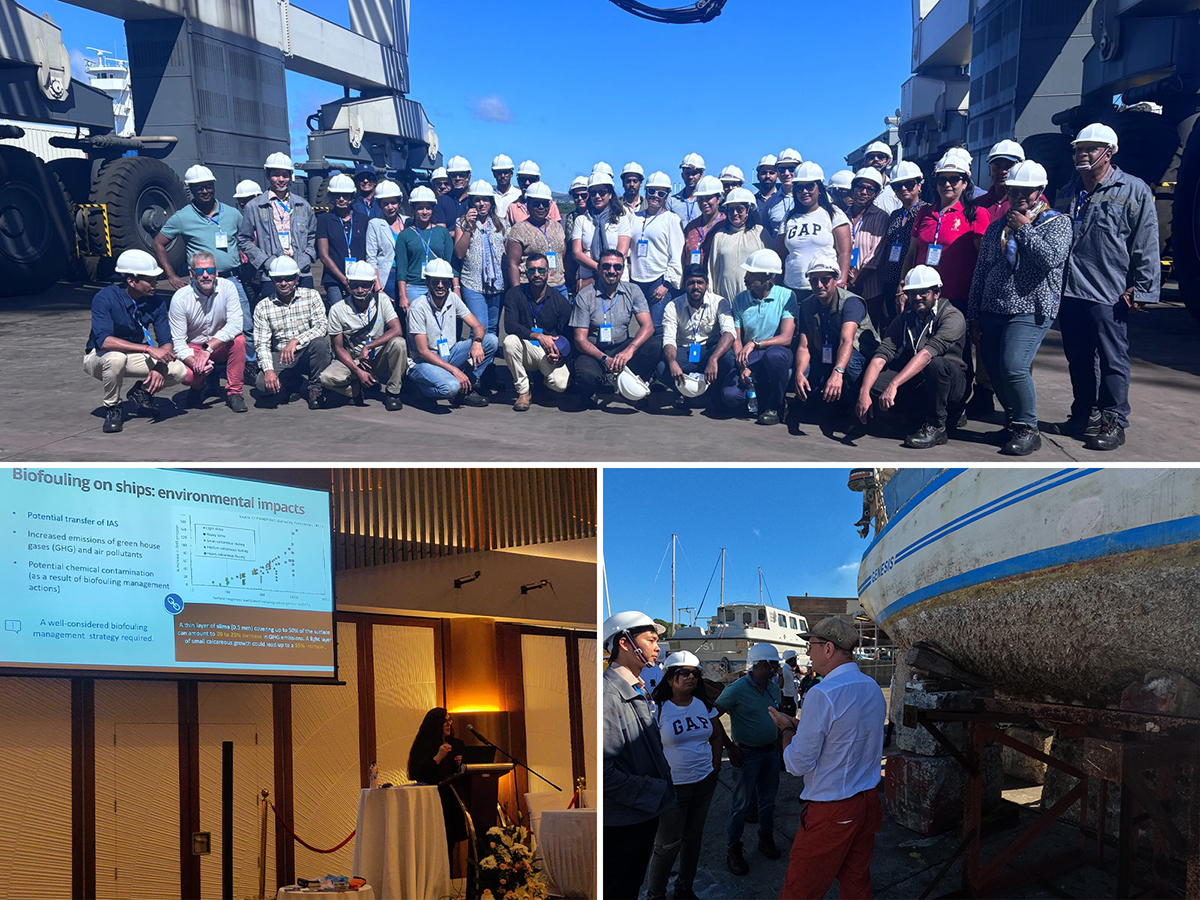Mauritian government officials and other stakeholders have received training on dry-dock operations for biofouling prevention and management to help protect marine ecosystems.
A pilot training course, held in Mauritius (27-28 May), saw 50 participants work through a new IMO training package developed under the GloFouling Partnerships project, which addresses the transfer of harmful aquatic species through biofouling.
The course builds on the existing development of Biofouling Management Plans and Biofouling Management Record Books course, in line with the IMO Biofouling Guidelines and other relevant requirements.
The training was delivered in cooperation with the Ministry of Blue Economy, Marine Resources, Fisheries and Shipping (Shipping division) and included visits to two dry-docks in Port Louis, which allowed participants to gain a first-hand appreciation for the scale of work involved.
Mauritius is one of 12 Lead Partnership Countries (LPCs) of the Glofouling Partnerships project. The project is developing publications outlining biofouling management in dry-dock operations, and recommendations for the development and evaluation of Biofouling Management Plans and Biofouling Record Books, which will be published in due course at glofouling.imo.org.
Participants included government officials representing the maritime administration, environmental or biosecurity agencies and port state control, managers and employees of shipping companies, port and drydock operatives, paint manufacturers and academics from the Mauritius Oceanography Institute.
